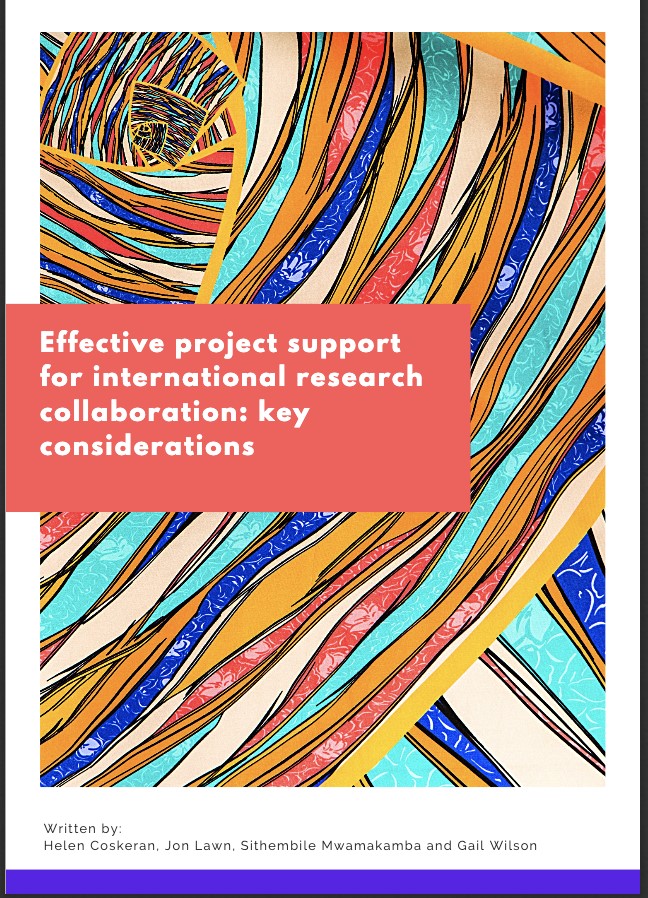
By Helen Coskeran, Jon Lawn, Sithembile Mwamakamba and Gail Wilson
There is growing recognition of the importance of international research partnerships in addressing some of the greatest challenges of our times. With the increasingly complex and fast-changing nature of many development challenges, such collaborations are seen as potential vehicles to deliver solutions and innovation. International partnerships enable researchers to share their knowledge and combine their expertise to address complex problems that are increasingly cross-disciplinary in nature. Furthermore, collaboration allows researchers to access much-needed resources, especially funding, to develop innovative interventions. But vital within such collaborations are those supporting the researchers in professional services and administrative roles.
We are pleased to announce the publication of a new working paper which shares lessons learnt during the development and implementation of large-scale international and interdisciplinary research collaborations.
This paper reflects on how project support activities contribute to the overall success and impact of multidisciplinary international research partnerships. It draws on a survey of 14 project managers implementing activities that form part of the Global Challenges Research Fund (GCRF) Growing Research Capability call launched in 2016 by the Research Councils UK (RCUK) now known as UK Research and Innovation (UKRI).
The paper was written by project managers from three GCRF projects: Agricultural and Food System Resilience: Increasing Capacity and Advising Policy (AFRICAP); Centre for Sustainable, Healthy and Learning Cities and Neighbourhoods; and Building REsearch Capacity for sustainable water and food security In drylands of sub-saharan Africa (BRECcIA). The work also benefited from the support of the Rapid Response Fund, which comes from the University of Leeds Strategic Development Fund.

